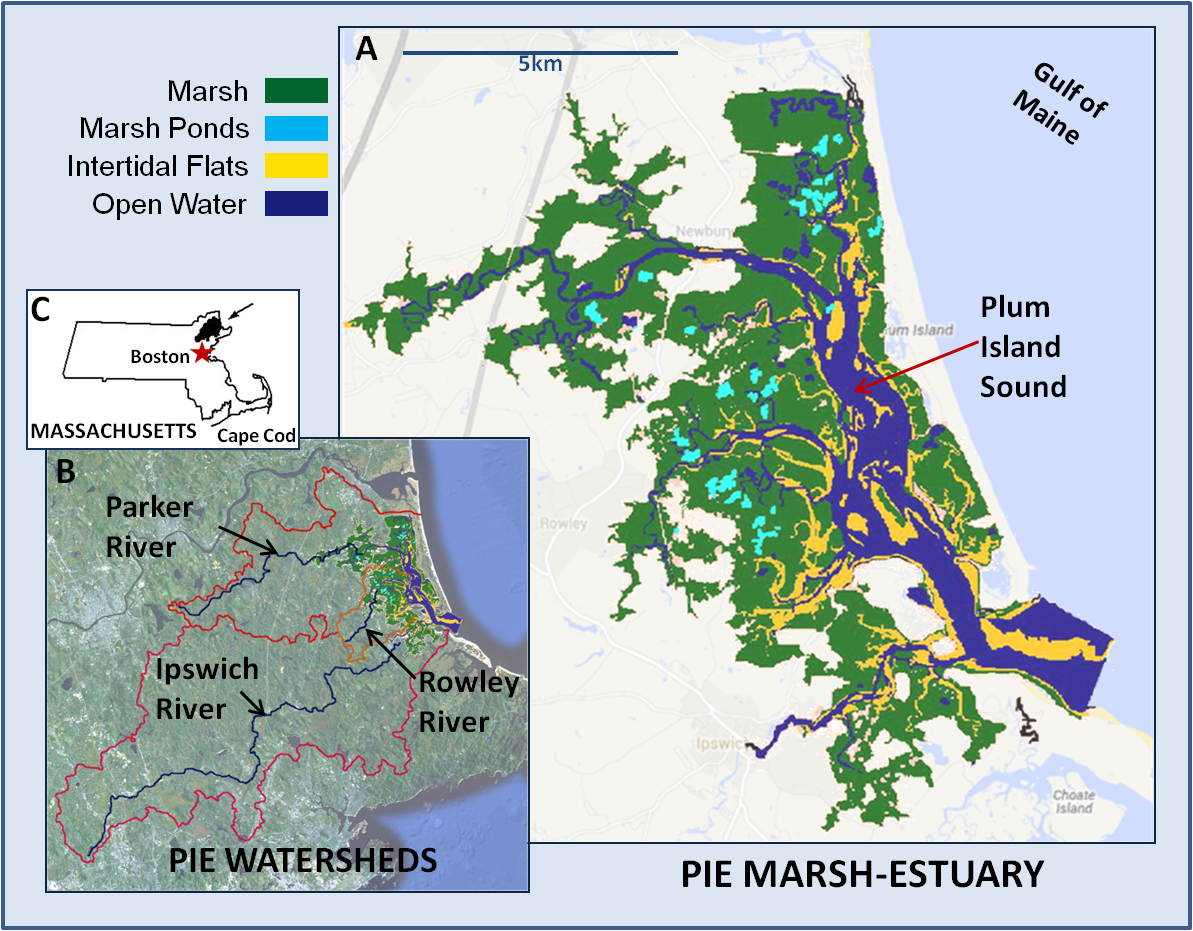The Plum Island Ecosystems (PIE) LTER research site consists of coupled watersheds and estuaries in northeastern Massachusetts. The Ipswich River (400km2), Parker River (161km2), and Rowley River (39km2) basins make up the watersheds of the system. The watersheds lie within the Boston Metropolitan region. Population density is about 250 people per km2.
watersheds and estuaries in northeastern Massachusetts. The Ipswich River (400km2), Parker River (161km2), and Rowley River (39km2) basins make up the watersheds of the system. The watersheds lie within the Boston Metropolitan region. Population density is about 250 people per km2.
The 25 km long (16 miles) macrotidal Plum Island Sound estuary contains salt marsh, dominated by marsh hay (Spartina patens) and smooth cordgrass (Spartina alterniflora), fresh marsh, dominated by cattail (Typha), intertidal flats, and open water tidal creeks and bays. This is the largest wetland dominated estuary in New England and it supports extremely productive commercial and recreational soft-shell clam and striped bass fisheries.
We have been investigating the ecology of Plum Island Sound estuary since the late 1980s with support primarily from the National Science Foundation. (NSF) We were part of NSF Land Margin Ecosystems Research program in the early 90’s. The site became part of the NSF's Long Term Ecological Research (LTER) Network in 1998. The Plum Island project is one of only 4 LTER sites that studies the effects of human activities in watersheds on estuaries. The PIE LTER has developed an extensive database open to the public via the Internet that includes our results from long-term field observations and experiments in the Ipswich, Parker and Rowley River watersheds and the Plum Island Sound estuary.
The LTER maintains two research facilities adjacent to the estuary. Marshview Farm consists of a house and field lab for 12 people; the Rowley River field house provides housing for 8, minimal lab space, dock facilities and access to field sites. Institutions participating in the PIE LTER include the Marine Biological Laboratory, University of Chicago, Clark University, Mass Audubon, University of Georgia, University of Massachusetts Boston, Kansas State University, University of New Hampshire, University of South Carolina, Boston University, Villanova University, University of Louisiana Lafayette, Virginia Institute of Marine Science, Woods Hole Oceanographic Institution, Woods Hole Research Center, Northeastern University, Louisiana State University
